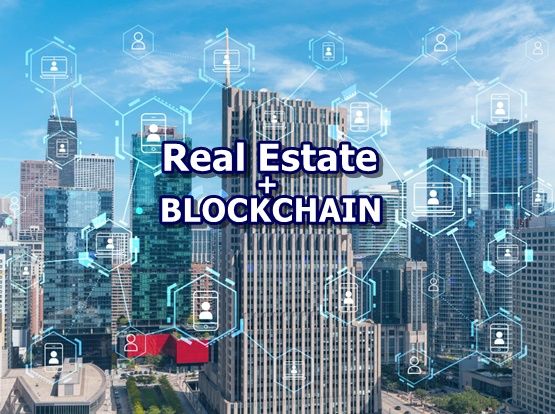Real estate and blockchain, the undeniable advantages. Blockchain could well help investors make lucrative trades that were not possible until now.
Real estate and blockchain or how to invest in real estate with blockchain in 2023?
A small revolution is underway in the real estate sector, as lucrative transactions become possible that were unthinkable just a few years ago.
Blockchain will enable real estate players to offer their customers the opportunity to buy « paper real estate » and collect rent, thanks to tokenization.
Real estate and blockchain, a key advantage: accessibility:
There are many different ways to invest in « real estate ». They range from the direct acquisition of physical property, to « paper real estate » such as Exchange-Traded Funds (ETFs) or Société Civile de Placement Immobilier (SCPI) shares.
Each method has its own advantages and disadvantages, to suit different investor profiles. However, a new way of gaining exposure to this asset class is beginning to emerge thanks to blockchain: real estate tokenisation.
This process generally involves digitizing shares in real estate assets, or rather the companies that own them, on a blockchain. This is achieved by means of security tokens or non-fungible tokens (NFT). These then give entitlement to the associated benefits, such as a share in the rents generated by the property.
Some real estate players have already understood this. Here are a few concrete examples:
To date, the leading real estate tokenization platform is RealT. However, it’s not the only existing solution when it comes to investing in tokenized real estate on the blockchain.
For example, where RealT is developing a down-to-earth approach through security tokens, the French platform Wincity includes more of a gamified dimension, through NFTs that can be used in a play-to-earn game.
At the same time, solutions such as Vave enable investors to tokenize their real estate themselves, in order to raise funds that will enable investors to share in the property’s revenues. HoneyBricks, on the other hand, tends to focus on commercial real estate.
The main advantage of this method is that it becomes possible for anyone to invest in real estate, whereas it is an extremely costly investment using traditional methods.
In a nutshell:
Tokenized real estate refers to the conversion of real estate ownership into digital tokens, typically on a blockchain. There are several potential benefits to this approach:
Increased accessibility: Tokenized real estate enables a greater number of investors to access otherwise inaccessible real estate assets. Tokens can be divisible, meaning that investors can buy a fraction of a property rather than having to buy the whole thing. This paves the way for more democratic participation and new investment opportunities.
Improved liquidity: Traditionally, real estate has been an illiquid investment, meaning that it’s difficult to sell a property quickly. With tokenized real estate, tokens can be traded on decentralized trading platforms, enabling greater liquidity and the possibility of selling fractions of a property more easily.
Fractionalized costs: Buying real estate often requires substantial capital. Tokenized real estate allows costs to be split, enabling investors to buy fractions of a property at affordable prices. This can make real estate investment more accessible to individual investors.
Transparency and security: The blockchain technology used in tokenized real estate provides a transparent, immutable record of all transactions. This strengthens trust between stakeholders, reduces the risk of fraud and improves transaction security.
Process automation: blockchain-based smart contracts can automate certain processes linked to real estate investment, such as the distribution of rental income or profit sharing. This can reduce administrative costs and simplify the management of real estate investments.
It should be noted that tokenized real estate is still an emerging field, and there are challenges to be overcome, such as regulation and legal compliance. It is important to conduct due diligence and consult qualified professionals before committing to tokenized real estate investments.

